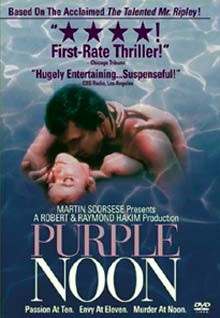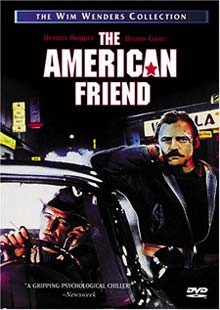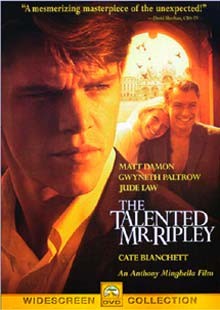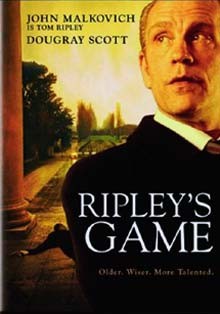|
By Gregg Barrios It's common knowledge that many independent, anime, martial arts, foreign, and art house films rarely get a multiplex screening in this city. And when these films do show, they are often in one isolated theater for a very short run. Welcome to River City, where film distributors are reluctant to book edgy, oddball films. Or so it seems. One has only to look north to Austin to see the vast difference. The rise of the inexpensive DVD format, widely available through mail order rental and retail companies as well as local video stores, makes it possible to see rarer cinematic releases. It's no longer necessary to wait for a like-minded impresario to mount the film festival of your dreams. With a little research and a valid credit card, you can host a private Hal Hartley retrospective, or trace the adventures of a long-lived character. Texas-born writer Patricia Highsmith is best known for her suspense novels, such as Strangers on a Train (made into a film by Alfred Hitchcock), and her five Ripley novels that feature the amoral, bisexual con man Tom Ripley. The first book, The Talented Mr. Ripley, made it onto movie screens as Purple Noon (1960). French actor Alain Delon portrayed Ripley as an ex-pat who learns to outfox those pretentious Europeans. Director René Clement, known for his thrillers, assembled a great cast, a Nino Rota score, a Mediterranean panorama and set it all in the swinging '60s. The film still resonates with Highsmith purists. In 1999, director Anthony Minghella re-imagined the identity thief as a guilt-ridden psychopath in The Talented Mr. Ripley. The bland and blonde Matt Damon was a poor choice for the Ripley role: British actor Jude Law steals the film, and it never recovers after his demise. Ripley's Game was the second Ripley book to make it to the screen. Director Wim Wenders called his 1977 version The American Friend. Dennis Hopper portrays Ripley as a cardboard political sign, a symbol for worldwide American corruption. The director's heavy-handed use of Highsmith's novel to wax nostalgic about American gangster and noir film history is dated. He even cast maverick directors Samuel Fuller and Nicholas Ray in cameos. (Wenders should have revisited Godard's Breathless with Jean Seberg's ex-pat twist as Daisy Miller.) The most recent film in the Ripley canon is Liliana Cavani's Ripley's Game (2003). The Italian director of The Night Porter showcases all the richness and decay that Highsmith masterfully captures in prose. Enter Ripley, now played by John Malkovich, some 20 years after the first book. Living in an Italian villa, married to a classical pianist, the master art forger and dealer is now "retired from the business." Inevitably, Ripley is urged by a former associate to make one more hit. Insulted by a British picture framer (pun intended), Ripley suggests that the offending framer would make a good hit man. The odds against the naïf accepting this Faustian pact are nil until the ante is raised. Throughout the course of the film, the notion that the world can be made better off through the eradication of evil is thoroughly tested. At one point Ripley confides: "You know, the most interesting thing about doing something bad is that after a few days you can't even remember it." Those familiar with Malkovich in Dangerous Liaisons will recognize the familiar psychological terrain. In Game, Ripley's wife asks how he was able to convince his innocent to participate in a murder. He ignores her question and proceeds to have sex with her. She persists. He ultimately replies: "Turn over and I'll tell you." What follows is one of the most erotic scenes this side of Last Tango in Paris. Her curiosity is sated. Malkovich delivers one of his more intelligent performances in Game. His Ripley is a middle-aged, balding effete with every quirky and persnickety detail of his character intact. Malkovich ranges effortlessly from sensitive art dealer rapturously describing a work of art to violent avenger going for the jugular when a patron reveals his ignorance of art. The mostly European supporting cast is equally fresh and engaging. The soundtrack - baroque music, and a contemporary score by Ennio Morricone and alt-favorite Dead Can Dance - is masterful. Ripley's Game has never had a San Antonio screening, although cable network IFC showed it earlier this year. All four Ripley films and Stranger on a Train are available on DVD locally and through mail order houses. The fifth Ripley film, White on White, based on Highsmith's Ripley Underground, is already in post-production. It's a good time to start planning the Tom Ripley Film Festival. •
|





